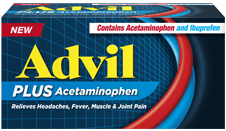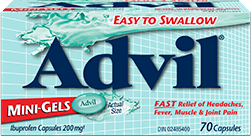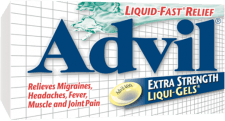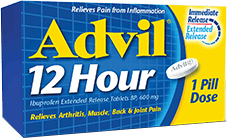Why You Shouldn’t Wait to Take Your Medication
Learn why treating your migraine early can stop or minimize an attack

You feel the first symptoms of a migraine coming on. You:
a) Reach for your pain medication
b) Wait it out
If your regular inclination is b, you may be setting yourself up for a longer attack.
Early treatment may result in a better outcome for migraine sufferers
Research shows that early treatment of migraine may result in a better outcome for the migraine sufferer. Yet often, people don’t take their medication until their pain is entrenched.
Why do we wait out the attack?
Maybe we think we can ride it out, or perhaps we hope it may not really be a migraine. Some are worried about overusing medications. Waiting it out may even be a symptom of a migraine-addled brain that isn’t thinking clearly. The catch: not taking your medication in the early stages of a migraine can actually contribute to a prolonged attack.
Heading off the pain
Migraine medication targets certain brain receptors to stop or minimize an attack. As your migraine progresses, more and more neurotransmitters get involved and attach to these receptors.
Think of taking your medication at the first signs of an attack as raising the drawbridge on those more stubborn neurotransmitters.
Migraine medications target certain brain receptors to stop or minimize an attack
So next time you’re tempted to wait it out, try these steps instead:
- Take your medication as soon as you feel pain. Chances are you’ll beat the attack with less medication. You may have a prescription from your doctor, or you can use Advil® or other over the counter medication for migraines with mild to moderate pain.
- Choose fast-acting medications, like Advil® Liqui-Gels®, or Advil® Extra Strength Liqui-Gels®
- Always follow the directions on the label.
- Eliminate any triggers and practice self-care.
- If you aren’t getting the relief you need, talk to your doctor.
What else can you do?
There are some preventative treatments, such as acupuncture, yoga, meditation and dietary supplements, which research has shown to help minimize the frequency and pain of attacks in some people. Talk to your doctor about complementing your medical treatment with these preventative measures.
For more information about migraines, go to the migraine section on our website.
Sources:
- “10 Tips To Get Rid of A Headache Quickly without Medicine.” WebMD, WebMD, www.webmd.com/migraines-headaches/5-ways-to-get-rid-of-headache#1. Reviewed by Melinda Ratini, DO, MS on May 21, 2018
- Foley, Kathleen A, et al. “Treating Early versus Treating Mild: Timing of Migraine Prescription Medications among Patients with Diagnosed Migraine.” PubMed.gov, U.S. National Library of Medicine, May 2005, www.ncbi.nlm.nih.gov/pubmed/15953272.
- Rothrock, John F. “Acute Migraine: Treating Early.” American Migraine Foundation, 5 Apr. 2009, www.americanmigrainefoundation.org/resource-library/acute-migraine-treating-early/.
- “Treat Your Migraine Attacks Early.” Migraine Survival, Promoting Awareness of Migraine and It's Associated Conditions, www.migrainesurvival.com/treating-migraine-attacks-early-2?f=sb.
Be sure this product is right for you. Always read and follow the directions on the label. This information is provided for educational purposes only and should not be used as a substitute for professional medical advice, diagnosis, or treatment. Speak to your healthcare professional before making any changes to your lifestyle or before beginning or discontinuing any course of treatment. Never disregard professional medical advice or delay in seeking it because of something you have read on this site.




